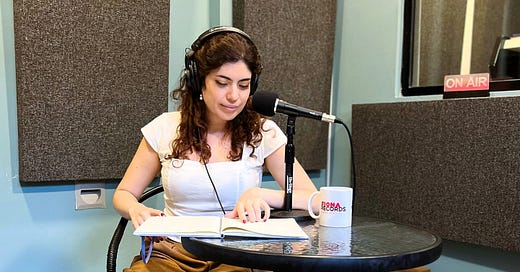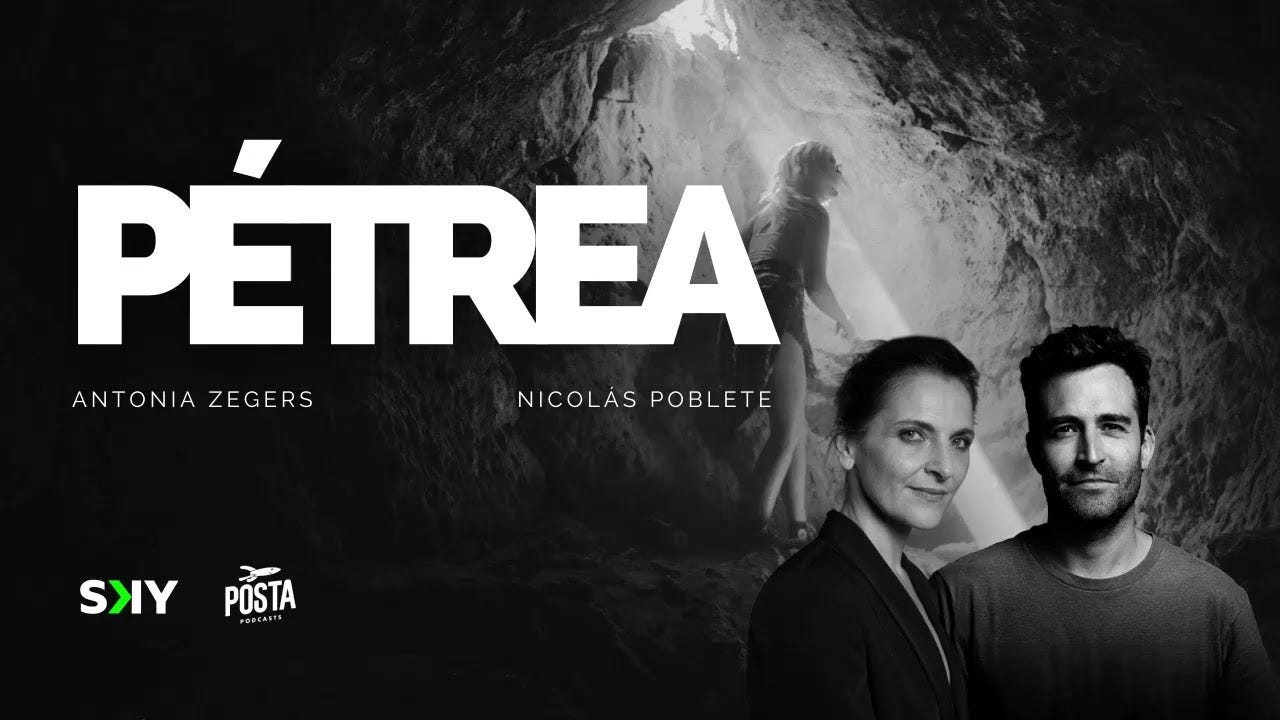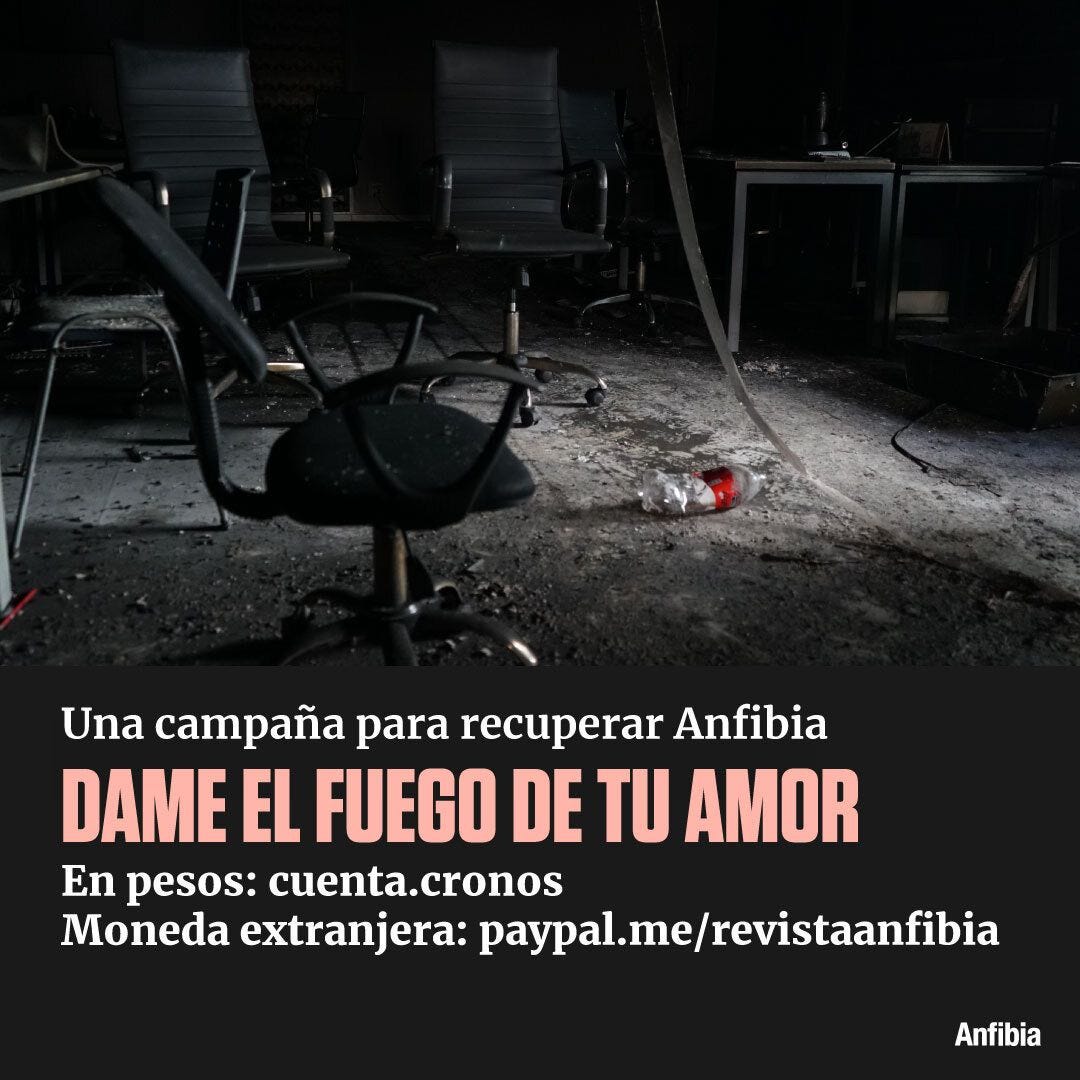
Hope you’re having a great weekend
Thanks for coming to Escribir en Voz Alta. You've seen my secret: I'm writing something new. That's the reason why I haven't posted here for a while. And well, these things happen: you study journalism, you practice and then you want absolutely everything you share to be perfect, polished and indisputable. In that spirit I've been writing, deleting, rewriting and thinking about making this a shared journey since January. I have thought that yes, I want to share the news but after it is complete, after it is edited, after it is perfect. That's not the spirit in which I started this. I came to celebrate the process, so here I go.
Today I’ll share the basics to start writing an audio series, a recommended podcast and a good cause.
A new audio fiction podcast in the block
There have never been more Spanish-speaking podcast listeners than now. And it has never been so difficult to finance them, so I'm going to start reviewing some of the new releases so we can talk about them, sounds good?
This February the Argentinian production company Posta launched Pétrea, a branded content for SKY Airline. Created by Maru Lombardo and starring Antonia Zegers, a Chilean actress who has participated in award-winning films such as “Una mujer fantástica” and “No”.
Reasons to love this show:
Rita Ullman is 40 years old and expects so much more from life but nothing works out for her. She sees her best friend move on, quits her job for taking care of her father, and then when nothing works out, she embarks on an adventure. The way that quest to "be part of something bigger" plays out in the series made me fall in love with the character. That and the flirting with a girl in a bar.
The sound design by Jeremías Juarez is very well done and the way the airline, i.e. the sponsor of the podcast, matches the plot.
Cheers for good branded content and audio fictions like this growing thanks to it. Listen here.
A good cause
The Argentinian friends from Anfibia lost their office this week due to a short circuit. Everything burned out. Furniture, equipment, everything. Anfibia's audio and print content has always been of the highest quality, they deserve to keep growing. If you want to support them and their indie journalism, here’s their campaign for donations.
Say it loud: I’m writing a new podcast.

Look, 2024 is my sixth year since I started working in audio (call it college radio, public radio, or podcasting). I look back and I can't believe it. I'm grateful because I've worked on many teams with many types of professionals and because of that I've gained experience as I've gone along. I know that I am part of a small number of people who are dedicated to audio. I feel sometimes that it is a countdown from here that maybe I have to contemplate expanding my career to other things and so, just for that reason, I decided to give me a chance.
There's a series I've wanted to do since 2018, when I discovered that in podcasts I could find my narrative voice. Viajes Inmóviles was a first rehearsal of that, I wanted a short podcast to produce that let me do experiments. It was fantastic, but mostly it was preparation. A great preparation for taking the series forward which, I'm sorry, I can't give you any more details about right now.
It's growing. If my series were a plant, it would be one of those little ones hidden in the ground and just with a little leaf peeking out. I am taking care of it every day. That's why I think it's the perfect time to talk to you about something that's not often talked about: How do you start writing a narrative series?
That is my contribution today. My vision of this process.
First step: Write an outline
We have to know where we are going to start a journey. I like to think of it like planning a hike: you have the starting point and then you make stops towards the final goal, like everything else in life. The outline of a series should summarize in one or two pages the who, how, and why of each of the episodes. That's where to start.
For example: let's say I'm going to write a series about Shakira. First I research her until I can come up with a summary of the key moments in her career. From there, let's choose the turning points, that is, the big turning points where her life was never the same again. Finally, let's decide where the beginning, middle, and end of each episode are. It could be: the divorce with Piqué, what would be the beginning, middle, and end of an episode about that?
Second step: Write a pilot
The best example that podcastear is learned by podcastear. We won't know if the idea works until we see it on paper and that is the most difficult and important part of this process. The pilot is the Alpha and Omega of the series. That's where you test the idea you have for your podcast, the theme, the tone, even what music and effects you would put on it. The pilot is written once and as many times as necessary. The best tool you can have there is a format. Are you going to write something short? A one-hour episode? A comedy or a true crime? To succeed I say it always takes what comes next....
Third step: Ask for feedback from someone whose taste you trust.
Good feedback is someone taking what you have and advising you on what to do to enhance your best attributes and discarding what doesn't work. Good feedback is someone who helps you get out of your comfort zone without destroying your creative self-esteem. Good feedback for your project is being able to count on someone who has already done something similar to what you are doing or someone who would be your ideal listener. It's not necessarily your partner or your best friend. It's definitely not someone who hasn't heard the kind of podcast you want to do. Many times asking for feedback when I wasn't ready or to the wrong person has cost me weeks of blocking. Creating collectively should always be a kind act, so seek good feedback and take it as an impetus to try again.
Last step: Protect your project and privilege your routine.
Especially when you are creating on your own, the issue of finding productive hours becomes complex. Some sparkles of inspiration can give you the impulse to create, but as they say "Motivation gives you the impulse but discipline takes you there". It sounds very motivational but it is very true. You know I wrote about how to find your productive time of day and about the point of effort and the point of fatigue. Those have all been hard-earned learnings. I'm still struggling to cultivate it: every time that I go to bed late on a Sunday, I struggle the next week to get back into a routine.
Protecting your project in the early stage is the biggest responsibility. I, for one, have resolved that the second draft of something should be at least 40% different and better than the previous thing I did. It is an exercise in destruction and assembly. That's why I think it should also be a private process. You have to let the creature grow enough to go out into the world standing on its own, don't you think?
So much for this edition of Writing Out Loud. Thanks to Ernesto Moreno, a new founding member of this space.
Thank you Ernesto, this post is to shorten the distance and taking the first step.





